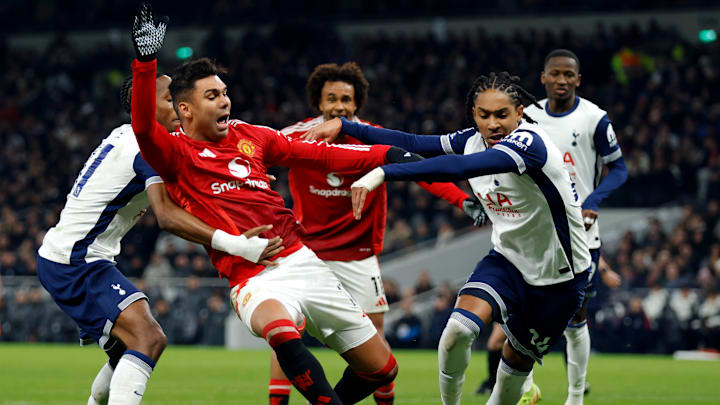Manchester United and Tottenham will decide the Europa League. The only two English teams in the European tournament overcame the obstacles and reached the final comfortably. United achieved another 4-1 win against Athletic Bilbao, and Spurs once more defeated Bodo/Glimt, this time 2-0.
The last time two English sides reached a European final in unison was six years ago in 2019. Six years on today, Premier League soccer is back on the stage of a final with a domestic tie that brings relief, prestige, and the chance to avoid being labeled as a failure in a season that didn't shine in domestic cups.
That success alone would be important. But the symbolism of this final goes even further. It is the battle of two giant clubs who, with strong teams and huge spending, are plummeting down the Premier League table and under huge pressure. Both view the title as a lifeline. Making the final was a major milestone. Winning is a question of survival.
The memory of 2019 still lingers
The recollection of English dominance in 2019 accounts for why this new European assembly is important. Four English teams spoke for England in both European finals last season. Liverpool beat Tottenham 2-0 in the Champions League, while Chelsea routed Arsenal 4-1 in the Europa League. It was a season that positioned the Premier League at the top of Europe and fueled the feeling that English soccer had become a complete force.

Much has changed since then. English clubs went on spending big, but internal rivalry and mishaps at decisive moments cooled the supremacy. The new final between United and Tottenham rekindles British supremacy, but with a different flavor. Both come this time trying to rediscover themselves.
The trophy is for staying away from failure
Manchester United is still far from the level the fans crave. The transformation of the coaching and the arrival of Ruben Amorim brought a dose of hope. The Portuguese coach is trying to shape a team with numerous names, but still unreliable. Reaching the European final is a precious asset in his first year at the club. Most importantly, it could be the dose to consolidate a project initiated in doubt.
If he wins the title, Amorim gets local support and restores some of the red shirt's glory on the continent. In times of uncertainty, a trophy victory would be the beginning of a new cycle. If they lose, the rebuilding narrative can flounder before it even has the opportunity to start.
Tottenham, meanwhile, is used to a pressure already ingrained in habit. Years of promise, good teams, good campaigns, but no championship. Their last championship was the Carabao Cup back in 2008. Since then, they have accumulated good stories and heartbreaking finals. They got to the final of the Champions League in 2019 and were beaten. They had hope in the Carabao Cup in 2021 and were beaten. And now again, they have the chance to end the drought. The difference is that this time around the opponent also bears the weight of responsibility.
Tottenham's Europa League season was good. The side was consistent, won convincingly, and arrives in good form. But recent history calls for caution. It is not the first time Tottenham has nearly got there. The question that continues to reverberate is always the same. will they be able to complete?

If they win, the club makes a leap of confidence, marketability, and morale among the supporters. A European title would shift the script, cement the hard work done, and dispel the specter of a team that only frustrates. If they lose, frustration returns full force and energizes the narrative that something always lacks when it counts the most.
English final, European soul
This English final is special in that it comes in a season when other English clubs are exiting the Champions League early. Paris Saint-Germain eliminated Liverpool, Aston Villa, and Arsenal consecutively. PSG was the British nightmare and shut down promising ventures. Manchester City was eliminated even earlier, by Real Madrid, and didn't even make it to the quarterfinals. The comparison is inevitable. While in the principal European competition England missed out, in the Europa League it returns to the stage with prominence, albeit with other teams.
The absence of giant favorites in the tournament paved the way for a final with greater emotional depth than technical display. Neither Tottenham nor United thrilled throughout the season. But they made it through. And they arrive hungry. The pride of the jersey, the history of the clubs, and the desperation for trophies turn this struggle more symbolic than it seems.
In real life, the European title guarantees more than prestige. It guarantees a qualification place in the next Champions League, something vital for two teams that have not qualified on the domestic league. The game is therefore transformed into a final with the taste of a moment of destiny.
Emotionally, the game puts two anxious fan bases, two boards under pressure, and two teams alternating between good games and total blackout. There is no favorite team. Balance defines the encounter. And maybe that's why there is such a high expectations pedestal. And whoever loses, beyond the runner-up tag, will have to bear the weight of another lost opportunity.
